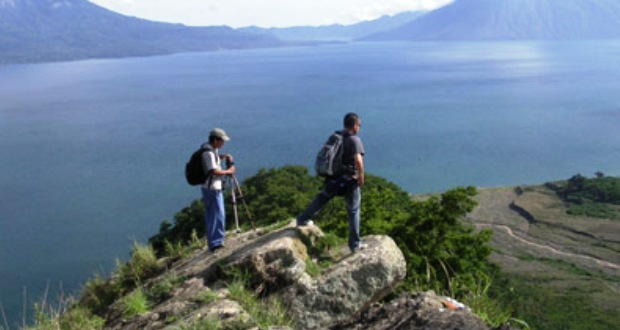Sacrament of the Holy Eucharist


The Catechism of the Catholic Church begins the article on the Eucharist with a reflection on the names by which the sacrament is identified. Here we read that each name “evokes certain aspects” of the sacrament. It is called “Eucharist because it is an action of thanksgiving to God” (CCC – 1328). It is sometimes referred to as “the Breaking of Bread” because Jesus used this rite, above all, at the Last Supper (CCC – 1329). The Eucharist is also called “the memorial of the Lord’s passion and resurrection…the Holy Sacrifice” because it makes present the one sacrifice of Christ the Savior and includes the Church’s offering (CCC – 1330).
The Meaning of the Eucharist, The Sacrament of Holy Eucharist, is the true body, blood, soul and divinity of Jesus Christ, who is really and substantially and sacramentally present under the appearances of bread and wine. The Sacrament of Communion is a Holy Sacrament by which the believer eats the Holy Body and Precious Blood of Jesus Christ, presented by the Bread and Wine. This Sacrament has the greatest importance among the Seven Church Sacraments. It is sometimes called the ‘Mystery of Mysteries’ or the ‘Crown of Sacraments’; for all the Sacraments are crowned by the Eucharist.
The Sacrament of the Eucharist has two sides: it is both a sacrifice and a sacrament. Our faith teaches us that what we proclaim in the Eucharist, Christ’s death and resurrection, is also made present in that very action by the power of God’s love and goodness. This is the heart of our faith in the sacrament we call the Eucharist, the holy sacrifice of the Mass, the real presence of Christ.
Christ’s sacrifice on the cross reconciled us with the Father and opened the Father’s kingdom of heaven to us. Because the Father lives in eternity and continually sees Christ’s sacrifice, the Sacrament of Holy Eucharist re-presents Christ’s sacrifice for us. When the priest celebrates the Holy Sacrifice of the Mass, in the Father’s sight we are present at Christ’s one sacrifice. When we approach for reception of the Holy Eucharist, in the Father’s sight we are approaching Christ Himself on the cross as He gives us His body, blood, soul and divinity.
The Sacrament of Holy Eucharist involves a sacramental covenant, an exchange of persons. When Jesus gives His body, blood, soul and divinity to us, we give our body, blood, soul and humanity to Him. We give ourselves to Jesus by preparing for heaven, by truly loving God with all our heart and soul and mind and strength, and by truly loving one another.
The form of the Sacrament of Holy Eucharist is the words of institution pronounced by the celebrant: “This is My body,” and “This is My blood.” As the celebrant says, “This is My body,” the bread is transubstantiated into Christ’s body, blood, soul and divinity. A moment later, when the celebrant says, “This is the cup of My blood,” the wine is transubstantiated into Christ’s body, blood, soul and divinity. More completely, the words of institution are: “Take this, all of you and eat it: this is My body which will be given up for you.” And, a moment later, “Take this, all of you, and drink from it: this is the cup of My blood, the blood of the New and Everlasting Covenant. It will be shed for you and for all so that sins may be forgiven. Do this in memory of Me.”
Holy Eucharist is a sacrament of the living. We must be in the state of grace to receive it fruitfully. It is good to receive the Sacrament of Penance frequently. The separate consecrations of bread to the body of Christ and wine to the blood of Christ occur through concomitance. God’s love for us is poured out in the sacrament of the Eucharist, where Christ is truly present for us, giving us life and healing.
The Roman Catholic Church has consistently held fast to the belief in the Real Presence. The Catechism of the Catholic Church states. “The mode of Christ’s presence under the Eucharistic species is unique. It raises the Eucharist above all the sacraments as “the perfection of the spiritual life and the end to which all sacraments tend.” In the most blessed sacrament of the Eucharist “the body and blood, together with the soul and divinity, of our Lord Jesus Christ and, therefore, the whole Christ is truly, really, and substantially contained.” “This presence is called ‘real’ – by which is not intended to exclude the other types of presence as if they could not be ‘real’ too, but because it is presence in the fullest sense: that is to say, it is a substantial presence by which Christ, God and man, makes himself wholly and entirely present.”
WHY IS THE EUCHARIST SO IMPORTANT TO THE CHURCH?
The Eucharist is at the heart of the Church’s life. In the celebration of this mystery of faith, Christ himself is present to his people. Rich in symbolism and richer in reality, the Eucharist bears within itself the whole reality of Christ and mediates his saving work to us. In short, when the Church gathers in worship of God and offers the Eucharistic sacrifice, not only is Christ really and truly present under the appearance of bread and wine, but he  also continues his saving work of our salvation.
also continues his saving work of our salvation.
WHEN AND WHY WAS THE EUCHARIST INSTITUTED?
With great clarity, the Second Vatican Council’s Constitution on the Sacred Liturgy teaches: “At the Last Supper, on the night he was betrayed, our Savior instituted the Eucharistic sacrifice of his body and blood. He did this to perpetuate the sacrifice of the cross throughout the centuries until he should come again, and so to entrust to his beloved spouse, the Church, a memorial of his death and resurrection: a sacrament of love, a sign of unity, a bond of charity, a paschal banquet in which Christ is received, the mind is filled with grace, and a pledge of future life is given to us” (SC 47).
WHAT IS MEANT BY CHRIST’S REAL PRESENCE IN THE EUCHARIST?
The faith of the Church concerning the real presence of Jesus in the Eucharist under the appearances of bread and wine is traced back to the words of Jesus himself as recorded in the gospel of Saint John. In the Eucharistic discourse after the multiplication of the loaves our Lord contrasted ordinary bread with a bread that is not of this world but which contains eternal life for those who eat it. He said: “I am the bread of life . . . I am the living bread which came down from heaven; if anyone eats of this bread, he will live forever and the bread which I shall give for the life of the world is my flesh” (Jn. 6.48, 51).
What Jesus offers us is his continuing, enduring presence every time we celebrate the Eucharist. The bread and wine become his body and his blood. “This is my body . . . this is the cup of my blood.”
The way in which Jesus is present in the Eucharist cannot be explained in physical terms because it transcends the ordinary necessities of space and measurement. It is a supernatural mystery that the person who becomes fully present at Mass is the same Risen Savior who is seated at the right hand of the Father. In becoming present sacramentally, Christ’s condition does not change. He does not have to leave heaven to become present on earth.
References
Catechism of the Catholic Church: paragraph
New Catholic Dictionary Sacrosanctum Concilium, 59, quoted in Catechism of the Catholic Church, 1123 Catholicism Guide- Scott P. Richert
LG — Lumen Gentium,
The Dogmatic Constitution on the Church,
Vatican I Pope John Paul II’s encyclical,
Ecclesia de Eucharistia, April 17, 2003
– The Catechism of the Catholic Church: paragraph 1374



